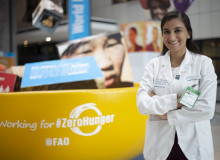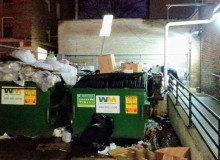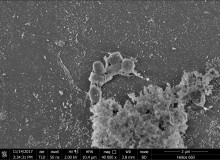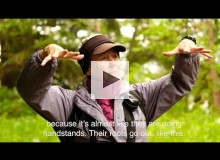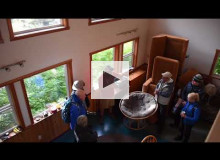Green Living
Planet Forward Correspondent | Northwestern University
You wouldn't think the stars would be a big part of an urban kid's life. But the opposite is true for Planet Forward Correspondent Colin Boyle thanks to an upbringing by a family of environmentalists.
Planet Forward Senior Correspondent
At the heart of D.C. sits an urban oasis: K Street Farms. Here, a hard-fought battle for food justice is being fought for the known food desert that is southeast D.C.
Planet Forward Correspondent | Northwestern University
A global advisor to the UN Global Compact Cities Programme gives her take on the future of urban sustainability on local, national and global levels.
George Washington University
Next in our four-part series, A Zero Hunger Future, GW School of Medicine student Harleen Marwah looks at the health sector’s role in the United Nations’ talks on achieving global food security.
Planet Forward Senior Correspondent | University of Wisconsin-Madison
My partner and I have been dumpster diving for a little over a year now. It sounds gross — and it certainly can be — but we've found mostly benefits to this uncommon practice.
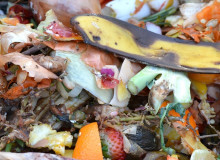
(Ben_Kerckx/Pixabay)
Planet Forward Senior Correspondent
People choose not to compost for a variety of reasons, however we have tried to rebut all the major arguments against composting to show you how easy and impactful composting is.
Planet Forward Senior Correspondent | Reed College
There have been 9.1 billion tons of plastic produced since the 1950s — with no efficient way of getting rid of it. Luckily, a recent college graduate may have found a new solution to combat our plastic waste.
SUNY Plattsburgh
The story of maps and the connection between humanity and the places we live: A podcast interview with Molly Brown, an artist and geographer.
George Washington University
In the final piece of our Alaska series, watch this video and hear about the connections made with those in Alaska using different types of storytelling, and how we might find our own stories.
Planet Forward Correspondent | George Washington University
Watch this video, part of our Alaska series, to learn more about the Inian Islands Institute and how one family is keeping things running in the Alaskan wilderness, mostly cut off from the outside world.

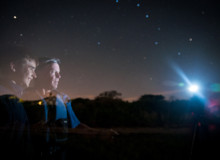
.jpg%3Fitok=K24kfeFM)

